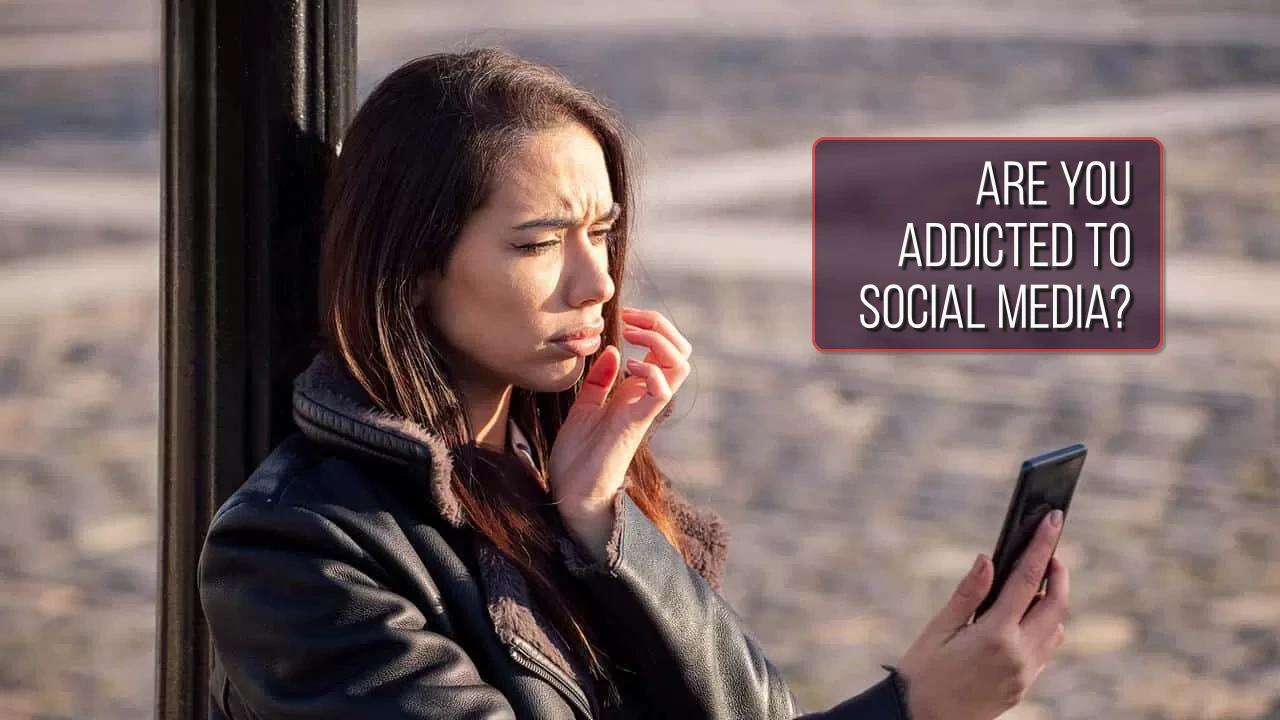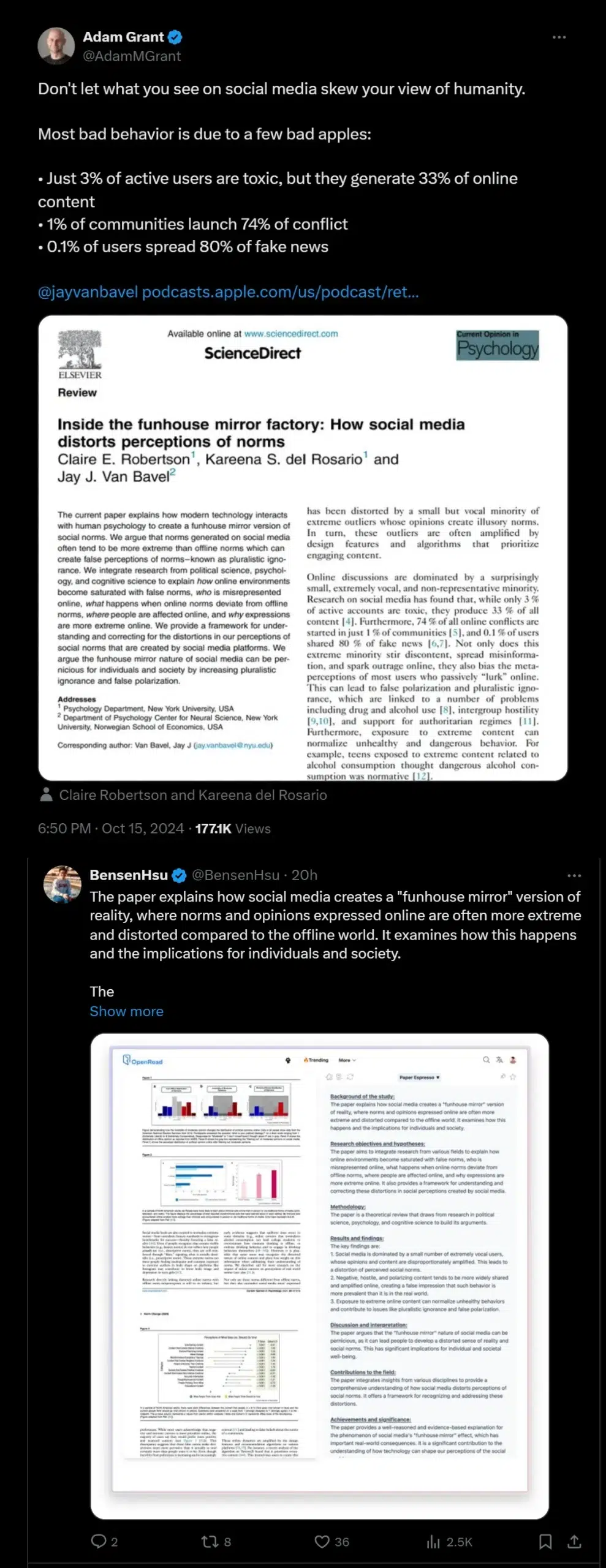Today's Monday • 5 mins read
What most people share on social media are their best moments. What most influencers recommend are just paid promotions. We’re being sold illusions.
Social media is an essential modern-day tool. Sadly, its use has reached unhealthy addiction levels in many, especially young people.
Constantly checking notifications and mindlessly scrolling through feeds is damaging our mental health, relationships, and ability to feel happy in the real world.
Worse, the issue is contagious. When we meet someone who keeps checking their phone while we are talking, we often pick up their bad habit.
Our anxiety when we aren’t online, during Facebook, Instagram, or Twitter outages, shows how much we rely on these social media sites.
And our favorite social media addiction joke is to switch off the wifi to get everyone in the house in one place.
What Causes Social Media Addiction?
Social media addiction is defined as a compulsive behavior in which we constantly check our social media, spend excessive time watching short videos, and monitor what others post.
Three main reasons that cause it are:
- Addictive Algorithm: The most direct cause is the addictive algorithm of social media. It shows us things similar to what we just liked. This triggers dopamine release, creating a pleasure and reward cycle, so we keep scrolling. It also remembers our preferences and sends notifications when we are off the platform.
- Escape From The Real World: Social media can be a form of escapism. It lets us take our minds off our real-world problems, like poverty or loneliness. We get to escape to places and lives that we might never actually achieve.
- Peer Pressure: Social media addiction can be a result of social pressure. We feel FOMO (fear of missing out). It drives us to keep up with our peers, who are nonstop scrolling through their social feeds. The reverse is the intentional habit of JOMO (joy of missing out), which can help us break the addiction.

Signs of Social Media Addiction
- Compulsive check-ins: One of the most common signs of social media addiction is a compulsion to check social media frequently, even when it interferes with other activities or responsibilities.
- Excessive and prolonged use: Spending long periods on social media, often at the expense of other activities or offline relationships, is another sign of addiction.
- Mood changes: Addiction to social media can lead to changes in mood, including anxiety, depression, irritability, and restlessness when unable to access social media.
- Neglecting responsibilities: Addiction to social media can cause people to neglect important responsibilities, such as work or school, in favor of spending time online.
- Physical symptoms: Addiction to social media can also cause physical symptoms, such as eye strain, headaches, and neck or back pain from prolonged screen time.
People addicted to social media often cannot eat without some media playing, and often lose track of time, realizing they have wasted hours when they intended to spend only minutes.
How To Overcome Social Media Addiction
Social media habits can become entrenched without you knowing. First, admit that you have a problem, and then take the following steps.
1. Set Boundaries
Boundaries are your best antidote to social media addiction.
Simple rules:
- Time boundary: Do not start a social media session without setting a timer on your mobile.
- Location boundary: Browse social media only at certain places, not wherever you find time to kill or are getting bored.
- People’s boundary: Do not open your social media while talking to people. Just go screen off when you’re interacting with another human, whether a loved one or a stranger.
Some other things you could do are turn off the notifications, turn off all blue light screens 30 to 60 minutes before bedtime, and avoid using social media first thing in the morning.
2. Practice Mindfulness
Mindfulness trains you to notice the here and now, so you are more aware of your tendencies to escape into the make-believe world of social media.
Notice what I wrote at the start: What most people share on social media are their best moments. What most influencers recommend are just paid promotions. We’re being sold illusions.
Before checking social media, take a moment to ask yourself what you are doing it for. Are you looking for connection, validation, or entertainment?
A mind trained in mindfulness can help you answer it without feeling defensive. It lets you create a space between your urge and your action, so you may decide not to be the slave of your addiction.
3. Find Other Activities
One of the best ways to overcome social media addiction is intentional distraction: finding and practicing other interesting activities.
You could try “going off the grid” for a while every day. Set aside some time to do things like read a book, play cards, or bounce and catch a ball.
A favorite thing of mine is to go on a trip around my city like a tourist, right from wearing touristy attire to carrying a backpack.
4. Take scheduled breaks
Schedule regular breaks from social media, such as a no-tech weekend or a week-long off social media.
Negative Health Effects of Social Media Addiction
Social media addiction can negatively impact our mental and physical health, relationships, productivity, creativity, calmness, thoughtfulness, decision-making, and overall well-being.
Here are some of the most common negative effects of social media addiction:
- Disturbed sleep patterns
- Loss of productivity and focus
- Increased anxiety and depression
- Decreased self-esteem and self-worth
- Increased feelings of loneliness and isolation
- Decreased face-to-face communication skills
- Decreased attention span and ability to concentrate
Final Words
One issue of overuse of social media is that we may start avoiding real-world human interactions in favor of virtual ones. This alienation from humanity may lead to loneliness.
Social media is a great tool to connect with loved ones, but if you feel it has become your master, consult a mental health expert.
• • •
√ Also Read: 15-Minute Mindfulness Meditation Script (Free PDF)
√ If you liked it, please spread the word.
